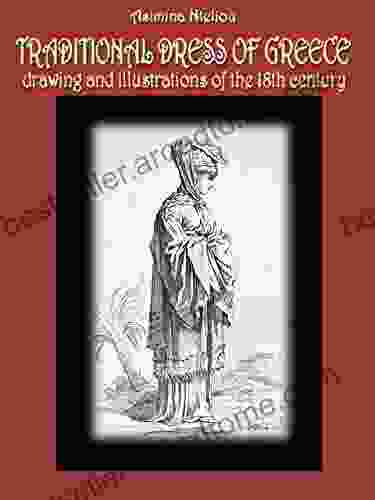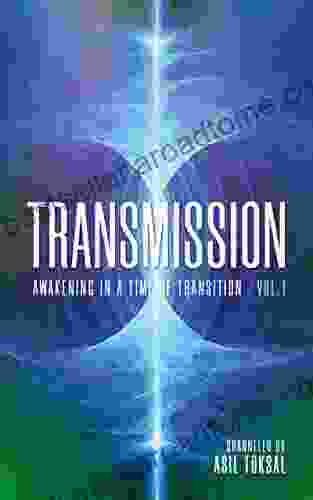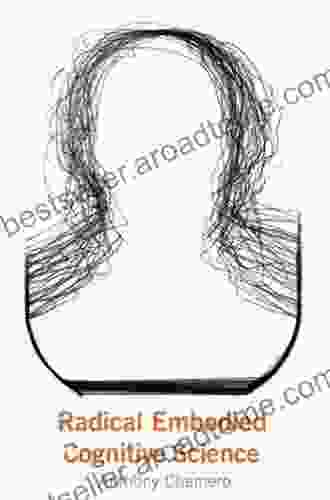Types, Degrees, and Formation of Adjectives: A Comprehensive Guide for English Daily Use

Adjectives are indispensable tools in the English language, adding color, detail, and precision to our communication. They paint vivid pictures, convey emotions, and enhance our understanding of the world around us. Understanding the types, degrees, and formation of adjectives is crucial for mastering the language and expressing ourselves effectively. This comprehensive guide will delve into these aspects, providing a thorough foundation for daily use.
Types of Adjectives
Adjectives can be categorized into several types based on their function and meaning:
4.8 out of 5
| Language | : | English |
| File size | : | 1123 KB |
| Text-to-Speech | : | Enabled |
| Screen Reader | : | Supported |
| Enhanced typesetting | : | Enabled |
| Print length | : | 127 pages |
| Lending | : | Enabled |
- Descriptive Adjectives: The most common type, these adjectives describe the qualities, characteristics, or appearance of nouns or pronouns. Examples: beautiful, intelligent, tall.
- Demonstrative Adjectives: Point out or specify particular nouns or pronouns. Examples: this, that, these, those.
- Possessive Adjectives: Indicate ownership or belonging. Examples: my, your, his, her, their.
- Quantitative Adjectives: Express quantity or number. Examples: many, few, several, some.
- Interrogative Adjectives: Used to ask questions. Examples: what, which, whose.
- Indefinite Adjectives: Refer to non-specific quantities or things. Examples: any, some, all, both.
Degrees of Adjectives
Adjectives can also be modified to express different degrees of comparison:
- Positive Degree: The basic form of an adjective, describing a quality without comparison. Example: The car is fast.
- Comparative Degree: Compares two nouns or pronouns. Suffixes "-er" or "more" are added to the adjective. Example: The car is faster than the bike.
- Superlative Degree: Compares three or more nouns or pronouns. Suffixes "-est" or "most" are added to the adjective. Example: The car is the fastest of all.
Formation of Adjectives
Adjectives can be formed through various methods, including:
- Suffixation: Adding suffixes like "-ful," "-less," "-able," "-ive" to nouns or verbs. Examples: hopeful, careless, likeable, informative.
- Prefixation: Adding prefixes like "un-," "in-," "a-," "non-" to words to change their meaning. Examples: unhappy, incredible, amoral, nonessential.
- Compounding: Combining two or more words to create a new adjective. Examples: bittersweet, standalone, heartwarming.
- Conversion: Using nouns or verbs as adjectives without any changes. Examples: a wooden table, an interesting book.
Usage in Daily English
Adjectives play a vital role in daily English communication. They:
- Provide specific information about people, places, and things.
- Convey emotions and attitudes.
- Enhance the descriptive power of our language.
- Create sensory experiences for readers or listeners.
- Add precision and clarity to our thoughts and ideas.
Examples in Daily Use
Here are some common examples of adjectives used in daily English:
- The beautiful sunset painted the sky in vibrant hues.
- The tall skyscraper dominated the city skyline.
- My favorite song always brings a smile to my face.
- The delicious meal satisfied my cravings.
- The unforgettable experience left a lasting impression.
Understanding the types, degrees, and formation of adjectives is essential for effective communication in English. By mastering these concepts, you can expand your vocabulary, enhance your writing and speaking skills, and express yourself with greater precision and impact. Embrace the power of adjectives and let them paint a vivid tapestry of words that capture the essence of your thoughts and emotions.
4.8 out of 5
| Language | : | English |
| File size | : | 1123 KB |
| Text-to-Speech | : | Enabled |
| Screen Reader | : | Supported |
| Enhanced typesetting | : | Enabled |
| Print length | : | 127 pages |
| Lending | : | Enabled |
Do you want to contribute by writing guest posts on this blog?
Please contact us and send us a resume of previous articles that you have written.
 Book
Book Novel
Novel Page
Page Chapter
Chapter Text
Text Story
Story Genre
Genre Reader
Reader Library
Library Paperback
Paperback E-book
E-book Magazine
Magazine Newspaper
Newspaper Paragraph
Paragraph Sentence
Sentence Bookmark
Bookmark Shelf
Shelf Glossary
Glossary Bibliography
Bibliography Foreword
Foreword Preface
Preface Synopsis
Synopsis Annotation
Annotation Footnote
Footnote Manuscript
Manuscript Scroll
Scroll Codex
Codex Tome
Tome Bestseller
Bestseller Classics
Classics Library card
Library card Narrative
Narrative Biography
Biography Autobiography
Autobiography Memoir
Memoir Reference
Reference Encyclopedia
Encyclopedia Arthur Jay Harris
Arthur Jay Harris Arun Gupta
Arun Gupta Annette Mckinney
Annette Mckinney Michael Pawlyn
Michael Pawlyn Jutta Mahlke
Jutta Mahlke Darussalam Publishers
Darussalam Publishers Anthony P Sayer
Anthony P Sayer Arthur Q Davis
Arthur Q Davis Antony Jason Willfour
Antony Jason Willfour Anthony Peake
Anthony Peake Zoe Harcombe
Zoe Harcombe Robert Mcteigue
Robert Mcteigue David Hatfield
David Hatfield Art Fuller
Art Fuller Victor Lopez
Victor Lopez Arthur Grace
Arthur Grace Earl F Epstein
Earl F Epstein Nigel French
Nigel French Telamon Press
Telamon Press Anne Mckinnell
Anne Mckinnell
Light bulbAdvertise smarter! Our strategic ad space ensures maximum exposure. Reserve your spot today!

 George Bernard ShawMake Every Woman Over 50 Want You: The Ultimate Guide to Dating Success
George Bernard ShawMake Every Woman Over 50 Want You: The Ultimate Guide to Dating Success Benji PowellFollow ·18.5k
Benji PowellFollow ·18.5k Dwight BlairFollow ·17.5k
Dwight BlairFollow ·17.5k Colt SimmonsFollow ·7.5k
Colt SimmonsFollow ·7.5k Dwayne MitchellFollow ·14k
Dwayne MitchellFollow ·14k Garrett PowellFollow ·4.2k
Garrett PowellFollow ·4.2k Darnell MitchellFollow ·11.3k
Darnell MitchellFollow ·11.3k Bradley DixonFollow ·13.1k
Bradley DixonFollow ·13.1k Ken SimmonsFollow ·10.9k
Ken SimmonsFollow ·10.9k

 Jeremy Cook
Jeremy CookDrawing and Illustrations of the 18th Century: A Journey...
Step into the...

 Easton Powell
Easton PowellPhysician Experience With Obstructive Sleep Apnea: The...
Obstructive sleep apnea (OSA) is a common...

 Cruz Simmons
Cruz SimmonsUnlock Your Inner Healer: The Transformative Power of...
Are you ready to embark on a profound healing...

 Paulo Coelho
Paulo CoelhoTransmission Awakening In Time Of Transition Vol. 1: A...
Transmission Awakening...
4.8 out of 5
| Language | : | English |
| File size | : | 1123 KB |
| Text-to-Speech | : | Enabled |
| Screen Reader | : | Supported |
| Enhanced typesetting | : | Enabled |
| Print length | : | 127 pages |
| Lending | : | Enabled |














